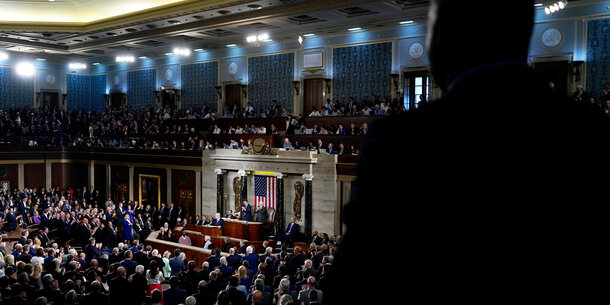In December, the Supreme Court will hear arguments in National Republican Senatorial Committee v. FEC on the question of whether coordinated party expenditure limits, which restrict the amount political parties can spend on advertisements in coordination with their candidates, violates the First Amendment to the U.S. Constitution.
Background
In 2022, the National Republican Senatorial Committee, the National Republican Congressional Committee, then-Senator J.D. Vance, and former Representative Steve Chabot sued the Federal Elections Commission (FEC) in the U.S. District Court for the Southern District of Ohio, arguing that the coordinated party expenditures in 52 U.S.C. § 30116(d) violate the First Amendment. Although the Supreme Court previously upheld these limits in 2001 when it decided FEC v. Colorado Republican Federal Campaign Commission (“Colorado II”), the plaintiffs argued that the Court’s subsequent decisions, including Citizens United, among others, have changed the campaign finance landscape such that the limits are now unconstitutional.
The district court certified the constitutional question to the Sixth Circuit Court of Appeals, which upheld the constitutionality of the limits under the Supreme Court’s binding Colorado II precedent. The groups challenging the law then asked the Supreme Court to review, urging the justices to overrule Colorado II and strike down the coordinated party expenditure limits as a violation of the First Amendment.
The Brief
The Brennan Center and Steptoe LLP filed a friend-of-the-court amicus brief on October 6, 2025. The amicus brief urges the Supreme Court to reject the arguments that petitioners and several of their amici raise, which conflate questions about the constitutionality of coordinated party expenditure limits with whether the limits are good policy. The Brennan Center has long advocated for campaign finance reforms to strengthen the role of traditional party organizations, including potentially repealing coordinated party spending limits. However, as the brief makes clear, these considerations should be left to Congress and the people to decide.
The brief documents how the Court’s campaign finance interventions since Citizens United have wrongly second-guessed Congress’s policy judgments and sharply diverged from the policy preferences of the American public — which emphatically supports reasonable limits on the role of money in politics. It also details how, partially as a result of the Court’s failure to root its decisions in well-developed factual grounding, these decisions have caused many harmful unintended consequences. In light of this history, the brief urges the Court to exercise judicial restraint in this instance and leave the complex policy decisions required to regulate campaign finance to Congress.




